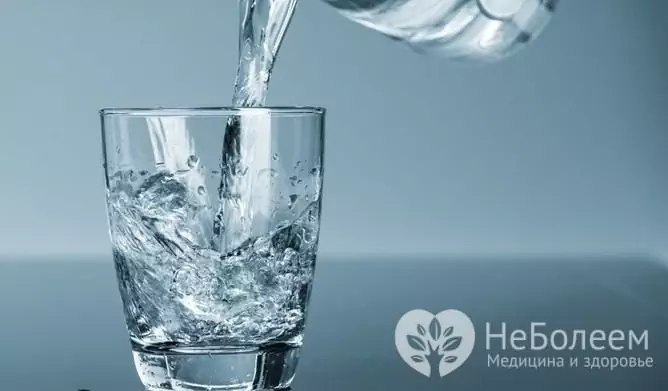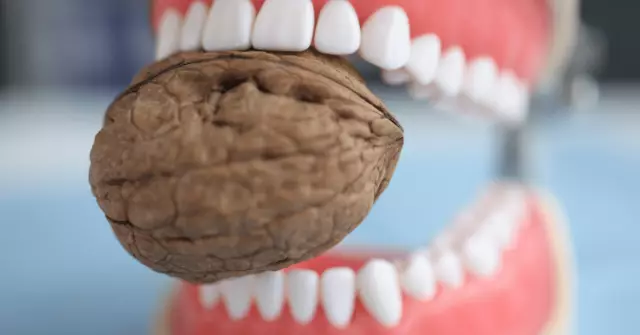- Author Rachel Wainwright [email protected].
- Public 2023-12-15 07:39.
- Last modified 2025-11-02 20:14.
How to keep your kidneys healthy: 10 habits you need to give up
The kidneys perform an essential function: they cleanse the blood of those metabolic products that cannot be used by the body for energy and the construction of new cells. With the urine produced by the kidneys, the bulk of the toxins that enter it with food and water are removed from the human body. Normal kidney function ensures the elimination of excess fluid from the body and maintenance of ionic balance. If there is a malfunction in the excretory system, toxic substances are retained in the body, which causes severe complications, and in a neglected situation can lead to death.
Like all important organs, the kidneys are highly resistant to harmful influences and work normally for some time, not responding to malnutrition, increased loads and other aggressive factors. However, this cannot last forever: sooner or later, habits that adversely affect the state of the excretory system lead to disorders, sometimes irreversible. This is why everyone should know how to keep their kidneys healthy.
Smoking and drinking alcohol
About 10% of the nicotine absorbed by a smoker enters the bloodstream unchanged and is transferred by the kidneys into the urine. In addition, poisonous tar and other tobacco combustion products are filtered out. All of these substances have a destructive effect on the most important structure of the kidney - the basement membrane. As a result, its permeability is disrupted, proteins begin to enter the urine, and over time, renal failure develops. The risk of such severe renal pathology as glomerulonephritis is 18 times higher in regular smokers than in non-smokers. A direct relationship between tobacco consumption and kidney cancer has also been established: after several years of smoking, the likelihood of tumors doubles.
Alcohol intake creates a huge additional burden, forcing the excretory system to function in an enhanced mode. As a result, the body becomes dehydrated, the blood becomes thicker, which makes it extremely difficult for the kidneys to filter it. It is not for nothing that after active libations, many people experience a pulling, obsessive pain in the lower back: this is how the organ reacts to truly ruthless exploitation. If these episodes are repeated regularly, kidney damage is inevitable.

Source: depositphotos.com
Lack of sleep
During sleep, the cells of the body are restored, including the kidney tissue. Chronic lack of sleep leads to the fact that this process is not active enough. People who spend less time sleeping than necessary often suffer from hypertension. The blood pressure in the vessels is directly related to the work not only of the cardiovascular system, but also of the kidneys: chronic excess of the norm provokes the gradual development of renal failure.

Source: depositphotos.com
Excessive caffeine intake
Caffeine is a powerful diuretic. An excess of it in the body causes dehydration and an increase in blood viscosity, which negatively affects the functioning of the kidneys.
Contrary to popular belief, a person gets caffeine not only from coffee. Tea contains no less of this substance. Many soft drinks (especially tonics) as well as chocolate are rich in caffeine.

Source: depositphotos.com
Avoiding foods rich in vitamin B6
The largest amount of vitamin B6 (pyridoxine) is found in meat, eggs, offal, milk, cabbage (especially cauliflower and broccoli), sea fish (tuna, cod), garlic, melon, and wheat bran. An adult needs to get from 2 to 2.3 mg of this vitamin daily.
Pyridoxine is involved in protein metabolism and nucleic acid synthesis. Its deficiency in the body leads to the development of many serious pathologies, including kidney stones.

Source: depositphotos.com
Sedentary lifestyle
Sedentary work, a daily routine that does not include walking, lack of physical activity have a bad effect on all organs and systems of the body. In particular, these factors contribute to the stagnation of fluids, a decrease in the speed of blood flow, a change in the composition of the blood, that is, the complication of the work of the excretory system.
Normally, the kidneys pass more than 1500 liters of blood through themselves every day. As a result of filtration, about 2 liters of urine is formed, containing toxins and metabolic end products. In a person who avoids physical activity and excess movement, blood flow is slowed down, which is why the kidneys cannot completely purify the blood. It is gradually oversaturated with harmful substances, which, in turn, makes the kidney filters work with increased stress. As a result, the body may become intoxicated, and the kidneys may wear out prematurely. Experts note that people with a sedentary lifestyle often suffer from inflammatory diseases of the excretory system and kidney stones.

Source: depositphotos.com
Delayed bladder emptying
In the hustle and bustle of city life, a person often does not immediately respond to the signals sent by an overflowing bladder. Meanwhile, regular delays in emptying it are fraught with the development of renal failure, as well as urinary incontinence.

Source: depositphotos.com
Passion for salty food
Table salt is necessary for normal metabolism, but its intake into the body should not exceed 5 g per day. Unfortunately, most people are fond of salty foods: chips, crackers, dried and salted fish products, deli meats, smoked meats, canned food, and fast food. A modern city dweller, as a rule, receives from 10 to 20 g of salt per day. An excess of it in the diet causes fluid retention in the body and seriously hinders the functioning of the kidneys. The problem is solved simply: you need to consume industrially made food and dishes as little as possible and slightly undersalted homemade food.

Source: depositphotos.com
Inadequate adherence to diets
In their quest to find the ideal figure, women often abuse diets. The result can be a chronic disease of the excretory system.
The fact is that the kidneys are surrounded by a layer of fat. Low-calorie diets lead to the fact that the body begins to use internal fat reserves to obtain the necessary energy. With excessive weight loss, the kidneys lose their natural defenses, in addition, their prolapse (ptosis) can occur - a severe pathology that causes severe pain and seriously reduces the patient's quality of life.

Source: depositphotos.com
Excess protein in the diet
Today, protein diets are very fashionable, providing for increased protein intake at the expense of carbohydrates and fats. With such a diet, the kidneys work with unnecessary stress. An excess of protein breakdown products in the blood causes an increased concentration of calcium in the urine and, accordingly, a high risk of developing kidney stones.

Source: depositphotos.com
Limiting water consumption
Some people believe that by reducing their water intake, they can avoid swelling. In fact, drinking less than 2 liters of liquid per day is very risky. Such a regime has a bad effect on the composition of the blood, worsening its rheological properties and increasing its viscosity. It becomes difficult for the kidneys to filter out harmful substances that remain in the bloodstream and poison the body. As for edema, it is not an excess of fluid that is usually to blame for their appearance, but a violation of its excretion.

Source: depositphotos.com
Everyone can keep their kidneys in working order. To do this, it is enough not to overcool, lead an active lifestyle, prevent unjustified eating disorders and give up bad habits. Of course, if you experience discomfort in the lumbar region, problems with urination, changes in the color and structure of urine, you should immediately consult a doctor.
YouTube video related to the article:

Maria Kulkes Medical journalist About the author
Education: First Moscow State Medical University named after I. M. Sechenov, specialty "General Medicine".
Found a mistake in the text? Select it and press Ctrl + Enter.






